- Home
- Anne Rivers Siddons
Homeplace Page 2
Homeplace Read online
Page 2
“No.” They never talked of personal problems, beyond the bare bones of information that had to be exchanged. Derek loathed what he called hormonal histrionics, and Mike had an almost British reluctance to fan out her pain. She was, she had told him on their first evening together, determined to anchor no relationship on pity.
This time, though, he surprised her.
“Come on,” he said, pulling her toward him and down onto the bed. He drew the throw back up over them and settled her into the hollow of his shoulder. He smelled good, like cold, wet salt air and expensive tobacco and toothpaste.
“Spill,” he said.
“You’ve got Alan and Chloe,” she said, feeling terror stir and roil slowly in the bottom of the black pit within her, where the sea and the sleep and the drug had banished it. She did not know what would happen if she let it free … “You’ve got the Rolling Stone thing.”
“Fuck Alan and Chloe. Fuck Rolling Stone. I’ve never seen you like this. I want to know what’s happening with you.”
“You know we agreed,” Mike said. “No gut spilling. We drank to it at the Palm, that first night.”
“That was a long time ago. Things change. You go deeper with me now than you did at first. You’re tough and you’re brave, Mike, but you’re human like the rest of us, like it or not, and something’s doing a fucking awful number on you. I’d be a real prick if I didn’t want to know what it was. More than that, I need to know.”
“Why?”
“Say you’re under my hide. Stuck in my craw. I seem to hurt when you hurt.”
“I … God, Derek, I don’t know where to start. To make any sense at all I’d have to start so far back …”
“Start at the beginning. Start with ‘I am born.’ Surprisingly effective first sentence. I’ve always been intrigued with the notion of your past. Do you realize that I know virtually nothing about you before you left the South and came to New York? You look like a young Hepburn playing Scarlett O’Hara, but you act like you were born last Thursday in the Time-Life lobby.”
“That’s what Annie said.”
“Annie?”
“Annie Cochran. You know, my shrink friend. You met her that first summer when she came out to Southampton.”
“Ah, your black shrink friend. Mammy Courage. How like you to leave out the pivotal adjective.”
“Black doesn’t have anything to do with Annie.”
“Give me a break. It has everything to do with her. It would have to. The fact that you left it out says something to me about your secret past. Except that I can’t really believe you have one. I never knew a beautiful and successful woman so without history.”
Mike knew that she was not beautiful, but was perhaps preternaturally vivid. It often seemed to have the same effect as beauty. Derek called it her white flame, and she accepted the carefully offhand compliment for both the elliptical truth in it and its purpose, which was, she knew, to make her feel better. It did, a little.
“Oh, I have a history,” she said. “It just doesn’t have anything to do with my present. Or I didn’t think it did. But Annie says …”
“Have you been seeing Annie professionally?” He was alert; a soft motor seemed to start up somewhere within him.
“Oh, no. Or just once.”
“When?”
“Friday. Friday night.”
“Before you came here?”
“I … yes.”
“So that’s why you were late. What happened on Friday, Mike?”
“Oh, several things. Nothing that can’t be handled. It was a bad day, but …”
“Mike.”
“Goddamn it, Derek, I had an anxiety attack on the train and had to go back to town, and I thought Annie might be able to help, and she did. Period. End of crisis.”
“No. Beginning of crisis, I think. And so Annie gave you whatever jolly stuff you’re taking, and told you that something in your past was making you nuts. What else did she tell you?”
“That was the sum of it. And it wasn’t nearly as dire as you make it sound. Haven’t you ever had an anxiety attack?” Mike’s voice was riding upward on the crest of the fear that was surging up from its pit despite the Xanax and had reached her wrists. They buzzed horridly, as they had on a few other occasions of great fatigue and tension in the past, when she had been near fainting.
“No. Not in living memory. And neither have you. You’ve been in tight spots all over the country for the past twenty years without turning a hair. Now I want you to tell me about this so-called anxiety attack in as much detail as you can, and take your time. It’s not fair to me to keep it from me.”
“Not fair … what about me? What if I don’t want to tell you about it?”
“You have to. You finally have to tell me about your life, Mike.” His voice had softened and deepened. She could feel it vibrating in his throat. “I can’t fix anything for you if you don’t. I can’t help you.”
“Are you going to fix things for me? Are you going to help me? Can you do that, Derek? I don’t think you can.”
“Well, I know I can. Goddamned right I can. I’m not going to leave you alone with whatever it is that makes you like this. I’m not going to just walk away from you.”
Something seemed to break and flood its warmth out into Mike’s cold, laboring chest. She felt an alien, treacherous prickling behind her eyes and in her nose. Her throat closed as if of its own volition.
I cannot be about to cry, she thought in alarm. I have not cried since … back then. Since that day.
She swallowed and sat up straight in the bed. Derek leaned back against the bookcase wall that served as a headboard and looked at her.
“Well?” he said.
“I really don’t know if I can do this, Derek,” she said. “I’ve never told anyone … all of it.”
“It can’t be any worse than some of the stuff I’ve already written.” He grinned at her, the sudden and strangely sweet grin that was so at odds with his brutal Toltec face. “Tell you what. I’m going downstairs and call Alan and tell him to either get me some time on Rolling Stone or tell ’em to put it up their asses. And then I’m going to bring up not one but two bottles of Moët et Chandon, which I just happen to have on ice, and I’m going to build up the fire up here and put on that goddamned Vivaldi of yours and take the phone off the hook and swathe you in this here dead mink, and you are going to get a little drunk and tell about Mike Winship. Including how come you’re called Mike Win-ship and not Sally Sue whatever. If it takes all day and into next week. Is that a deal?”
“Yes,” said Mike faintly. “I guess it is, yes.”
She lay still while he got up and went out of the room and down the circular wrought-iron staircase into the lower part of the house. She could hear his heavy padding in the kitchen, and the opening and closing of the refrigerator door, and an indistinguishable telephone conversation. Outside the sun stabbed in and out of the flying clouds over the ocean, a violent and apocalyptic seascape. It looked arctic, Siberian, though she knew that it probably was not. The chill that gripped her emanated from inside her, solid and heavy and cold, like a long-dead fetus. At the thought Mike jackknifed herself into a knot.
Derek Blessing came back up the stairs laden with bottles and glasses and set them on the floor beside the bed. He paused and looked at her, and then drew the mink throw up around her neck and added a goose-down comforter faintly redolent of spilt Wild Turkey.
“Just let me get the space heater out of the closet and hook it up,” he said over his shoulder. “It’s getting colder than a witch’s teat out there. Don’t be afraid, Mike. You can stop anytime it gets too tough. But you have to start. You have to do that, at least.”
She said nothing. She moved closer in upon herself. By the time he had whisked the heater out of the closet and thumped it down on his side of the bed, she was curled in a ball on her side, facing away from him toward the cold sea, knees drawn up, arms crossed between them, fists knotted. Like a fetus. Aga
in, the image of the fetus. Like the fetus she herself had been until she was born.
She lay perfectly still for a space of time, and when she finally spoke, it was in the frail, light voice of a tired child.
“Well, you know,” Mike said, “the very first thing I did in my life was to kill my mother.”
2
FOREVER AFTER THE SUMMER NIGHT IN LYTTON, GEORGIA, that sent Mike Winship a world away from home, she spoke of her childhood—when she did speak of it—as normal.
“Absolutely average,” she would say lightly at one party or another in those luminous, young, always-twilight first years in New York, when she was still going to a great many parties. “Textbook typical. Tadpoles and apple trees and bicycles and cutting your own Christmas tree from your grandparents’ farm, and braces, and camp in the summer … the works.”
“Were you in love with the boy next door?” someone was sure to ask, drawn, as were most people, by Mike’s soft, rich alto laugh and accent, and the strange incandescence that sometimes played around her plain, sharp face.
“No. The boy up the street.” She would smile, and they would invariably smile with her.
“But then you chucked it all and left the old plantation and the boy up the street and started writing for smartass magazines,” more than one of Richard’s intrigued Jewish liberal classmates had said, or words to that effect. “How’d a southern belle like you end up in New York with a smart-mouthed little Jewish mama’s boy?”
“Oh,” Mike would say, “I got tired of watching them flog the slaves and burn crosses on the Negroes’ lawns.”
“Did your family have a plantation really? Did your father grow cotton?” one stunningly witless blond nurse from Yonkers asked her once, and the entire party had groaned. It was a fund-raiser for Shirley Chisholm, and all the young members of Richard’s law firm were there.
“Oh, Lord, no.” Mike smiled at the girl, for once not taking refuge in sarcasm. She knew that the nurse was a blind date, the daughter of one of her hapless date’s mother’s friends, and would not be asked again. Mike also knew that there would be general laughter after the couple had left, and several imitations. She felt sorry for her, and a small prick of kinship.
“I lived in a big old white elephant of a house in the middle of town, and my father was—is—a lawyer. I think my grandparents grew some cotton once, but I never saw it. The closest I ever got to a plantation was seeing Gone With the Wind, just like you. I really did have an extraordinarily ordinary childhood. It might have been in Connecticut or New Jersey or Yonkers, for that matter.”
“But was it happy?” the girl pursued. It was as if the smooth white mind behind the equally pristine brow could not conceive of normality or content in such an exotic region as Georgia. Mike might have told her that she had grown up quietly and happily on Uranus.
“For God’s sake, Elise,” the nurse’s date muttered.
“Yes, it was happy.” Mike smiled again at the doomed Elise. “It was just a plain, garden-variety happy childhood.”
“And that’s true,” she said to Richard, who challenged her on the way home. “It was, except for that last business, and that wasn’t really part of my childhood. I can’t think how all the other years could have been any more normal.”
It is astonishing how the immutable slain child in all of us colludes with its murderers.
Claudia Searcy Winship, Mike’s mother, died at age twenty-eight of an undiagnosed congenital heart malformation when her second daughter was born. In addition to the tiny, squalling female infant, who was to have been a boy and borne the name of the paternal grandfather, John Micah Winship, Claudia left behind her in the large old Victorian house on Pomeroy Street a five-year-old daughter who was a petite, blue-eyed, ebony-curled replica of herself and a tall, slender, ashen-haired Lowland Scot husband who turned, on the night of her death, from a proud and exuberant young man with the world by the tail into a remote holograph of himself.
For the remaining years that the new baby girl would live in the house that her father had bought his bride with his first year’s savings as an associate in an Atlanta law firm, a great, formal emptiness reigned. Almost the only sounds that could be heard in that temple once dedicated to the sweet, orderly litanies of Family were the treble pipings of exquisite small DeeDee (named Daisy for her paternal grandmother), the fitful uproars of troublesome baby Mike herself, and the sonorous grumbling of loving black Rusky Cromie, who minded the Winship girls, kept the echoing house, and anchored the world within it.
In a large, dim study at the back of the first floor, outside the orbit of the house’s life, John Worthy Winship dwelled in silence with his damaged and souring heart, immersed in papers from his briefcase. He looked up only to rest his eyes on the photograph of Claudia in her wedding dress that stood on the desk. It was a rolltop of great, smoky age and looked to be a family heirloom, but John had bought it from the estate of an impoverished farmer-scholar whose affairs the firm had handled; his own family had not been desk people. The only other ornament on its polished surface was a faded photo in a walnut frame of a plain white dogtrot farmhouse, leaning gently in on itself like a sturdy old woman settling into age, shaded by huge pecan trees. Behind the house were a few bleached outbuildings, and in the far distance fields stretched away into a streaked Kodak sky. Both the house and the photo had the look of age and weather and wear.
John Winship had always called the house the homeplace, as was the custom in that part of the red north Georgia hill country that owed so much of its provenance to the Scots and English who had trickled down from the Appalachian highlands. It had been in his family for five generations, being shored up and added to by each succeeding family of Winships, until it had attained a somewhat imposing bulk that was belied by the meagerness of its inner creature comforts and its furnishings. There was never more than just enough money to live on in the Winship clan, for this hundred-odd acres of corn, cotton, and oat land was farmed only by the current Winships in residence and two or three black sharecropping families, who occupied the precarious shanties along the creek bottom.
The earliest Winships had come to Georgia from Virginia, but before that they had dwelled in the wild, unnamed hills and secret coves of the Great Smoky Mountains, and before that, had followed the wrong young chieftain into battle at Culloden and had exited Scotland hard on his heels. Winships had, in essence, been backing the wrong horse ever since. In the years of drought, they planted oats. When they put in corn, the deluges came. When they sowed cotton, the boll weevil followed. The land was favorable for crops, but their luck did not seem to be. Nevertheless, after centuries of tending other men’s holdings in Scotland, a fierce and silent passion had been born in them for these, their own few red acres across the western sea, and that passion had burned in their sallow breasts ever since, through good years and bad, like the subterranean fires that burned unseen for a hundred years in the mines of their own bleak north country. Both the land and the passion came down to John Worthy, the last male Winship to bear the name, who was also the first to leave the land since the original Great War (in which the Winships had, predictably, backed the losers), and the first to go away to school to learn to be other than a tender of the land.
“But I’m not thinking to leave it for good,” John Winship told his bride-to-be, Claudia, when he took her home to meet wary, work-reddened John and Daisy Winship. They were plainly intimidated by this town-bred Dresden shepherdess that their incomprehensible lawyer son had brought home, perched on his arm like an exotic fowl from a strayed caravan.
“First I’m going to fix up the house in town, something you and our children will be proud of, and make Mama and Daddy comfortable for the rest of their lives,” he elaborated, the dreams near to boiling in his gray eyes. “Then, one day, I’m going to make a real showplace of the homeplace, a real gentleman’s farm. Get rid of the corn and cotton and put in a dairy herd. Mechanize the place, get some good help. Fix up the house from stem to
stem, maybe add on some columns. Then we’ll go back. My son is going to be the Winship of Winship Farms, and it’s going to put everything else in this end of the county to shame.”
Claudia, a celebrated beauty in the medium-sized town just to the east where she had grown up, a canny girl but no scholar and possessed of meager lineage and nonexistent dowry, as well as an abiding fear of cows, dimpled up at the tall young man with the dream-steeped gray eyes and held her tongue. Plenty of time yet to enjoy the Pomeroy Street house and her future status as a lawyer’s wife before the time came to disabuse him of the notion that she would make a good farm wife, even on a gentleman’s farm.
John Winship worshiped and sentimentalized his taciturn, hardworking parents, even though the flame of ambition warred in his breast with their credo of labor and sacrifice and the immutable sovereignty of the land. By the time they died of exhaustion and sheer boredom, as well as the virulent influenza that decimated Fulton County in the mean years of mid-Depression, they had become in his eyes wise and simple agrarian saints, and the scant and strictured childhood he had spent in the fields of the homeplace had been transmuted into a Mc-Guffey’s Reader boyhood. He mourned their passing long and passionately. Hardly a day went by that he did not capture small, squealing DeeDee after he returned home from work and drive the two miles down Highway 29 along the Atlanta and West Point tracks to where the old white house stood beside the road, its fallow fields sliding away into the fading sun. He kept the house roofed, painted, and squared. It was his fancy to keep fires laid in the whitewashed fireplaces, ready for the match. He paid the tenants, who stayed on working the only land they had ever known, to keep the hedges trimmed and the swept yard tidy, and he himself attended to the grape and scuppernong arbors and the field of daffodil bulbs that made a blazing yellow splendor beside the highway every spring.

 Colony
Colony Nora, Nora
Nora, Nora House Next Door
House Next Door Homeplace
Homeplace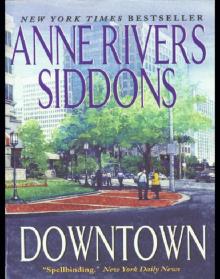 Downtown
Downtown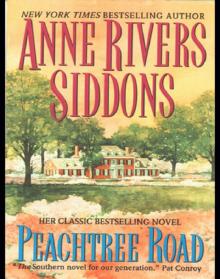 Peachtree Road
Peachtree Road Sweetwater Creek
Sweetwater Creek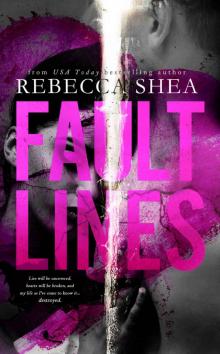 Fault Lines
Fault Lines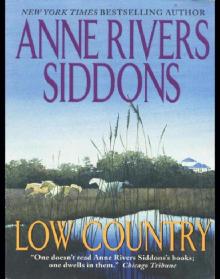 Low Country
Low Country The Girls of August
The Girls of August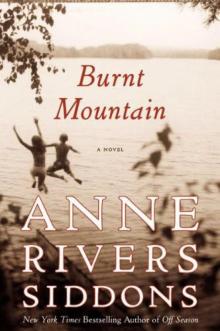 Burnt Mountain
Burnt Mountain Islands
Islands